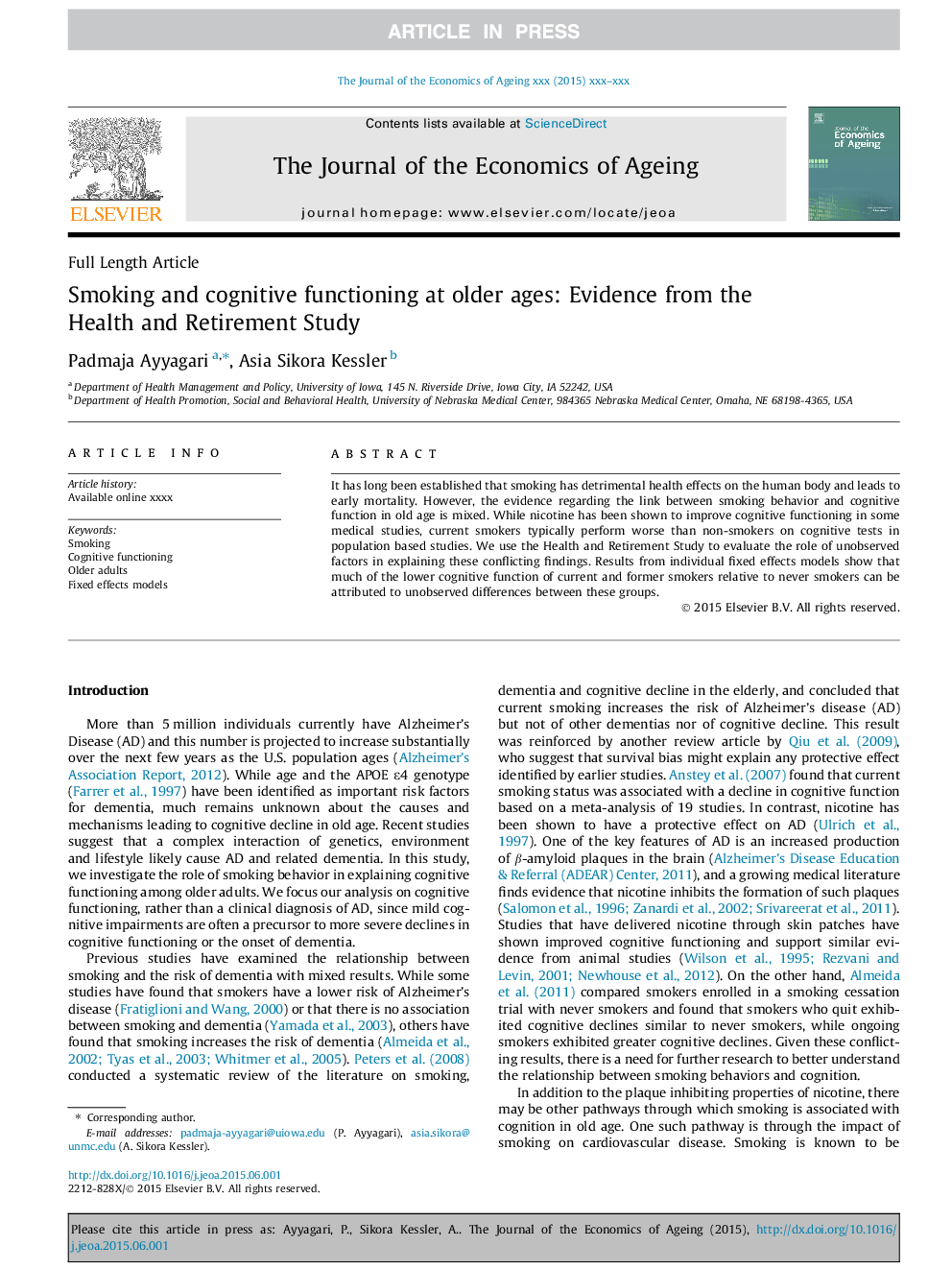| Article ID | Journal | Published Year | Pages | File Type |
|---|---|---|---|---|
| 7360010 | The Journal of the Economics of Ageing | 2015 | 11 Pages |
Abstract
It has long been established that smoking has detrimental health effects on the human body and leads to early mortality. However, the evidence regarding the link between smoking behavior and cognitive function in old age is mixed. While nicotine has been shown to improve cognitive functioning in some medical studies, current smokers typically perform worse than non-smokers on cognitive tests in population based studies. We use the Health and Retirement Study to evaluate the role of unobserved factors in explaining these conflicting findings. Results from individual fixed effects models show that much of the lower cognitive function of current and former smokers relative to never smokers can be attributed to unobserved differences between these groups.
Related Topics
Social Sciences and Humanities
Economics, Econometrics and Finance
Economics and Econometrics
Authors
Padmaja Ayyagari, Asia Sikora Kessler,
